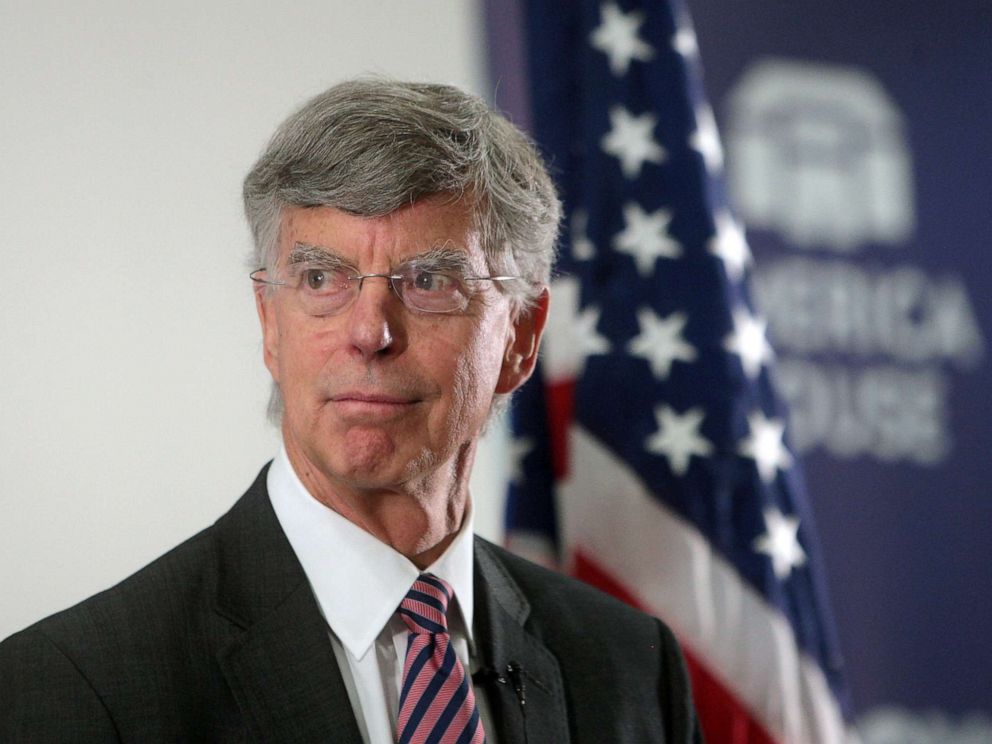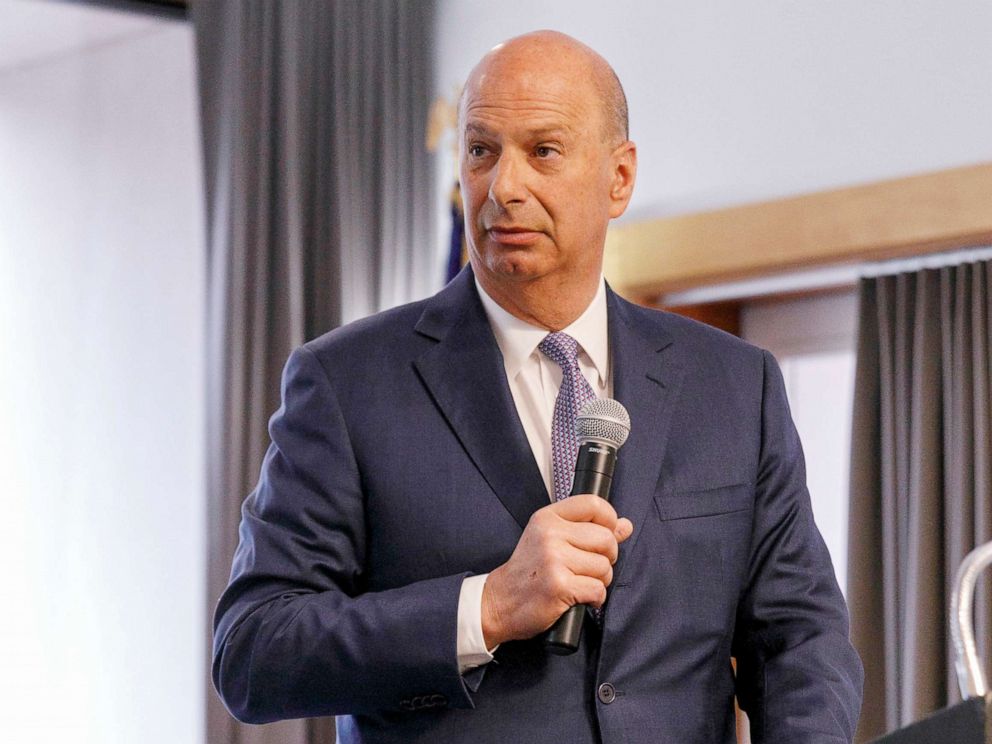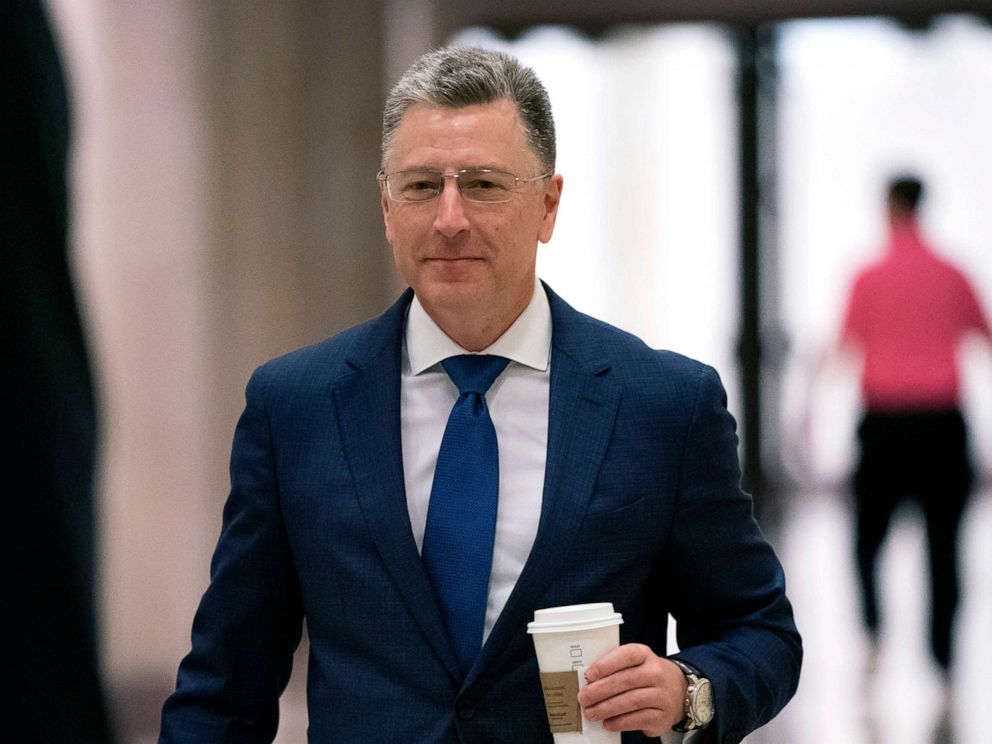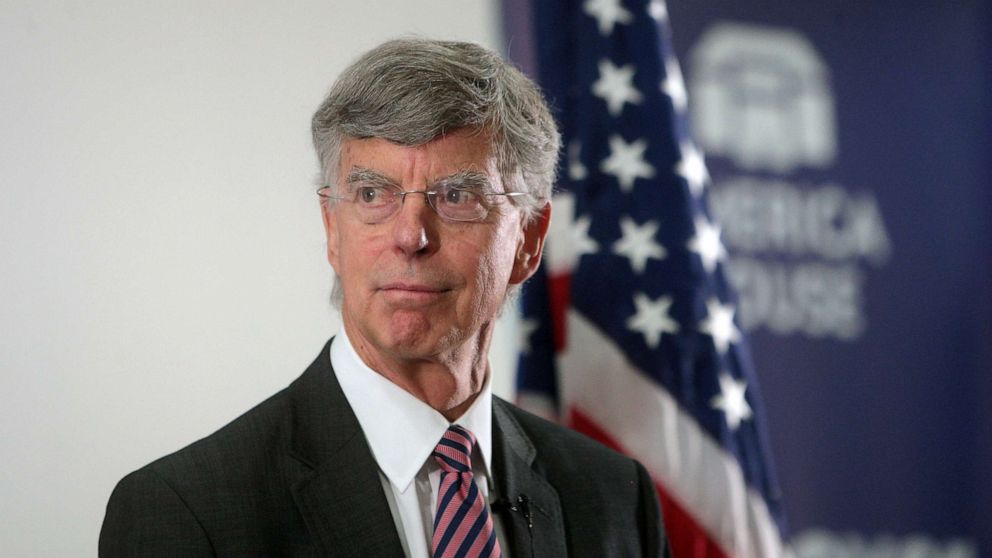[ad_1]
Last month, three top U.S. diplomats used encrypted texts to discuss what one saw as a particularly troubling development: President Donald Trump had put a hold on hundreds of millions of military aid to Ukraine around the same time he was asking Ukraine for help investigating his political rival.
Interested in Ukraine?
Add Ukraine as an interest to stay up to date on the latest Ukraine news, video, and analysis from ABC News.
The Sept. 9 text exchange provided to Congress on Thursday was an encrypted chat among Kurt Volker, the U.S Special Envoy to Ukraine at the time; Bill Taylor, the top U.S. diplomat to Ukraine; and Gordon Sondland, the United States Ambassador to the European Union.
Here are five things to know:
A career foreign service officer challenged his colleagues, calling Trump’s actions ‘crazy’
Of the three, it’s Taylor — the top diplomat in Ukraine who has served under at least four administrations — who expresses serious concern that the administration has placed a hold on aid to Ukraine, warning the move had “shaken their faith with us.”
 Avalon.red via Newscom, FILE
Avalon.red via Newscom, FILE
At the time of the exchange, questions were already swirling about Trump’s aid strategy. News broke in late August that nearly $400 million of security assistance had been put on hold by the White House.
In a Sept. 5 Washington Post editorial, the newspaper said it had received information Trump was “attempting to force” Ukraine’s president “to intervene in the 2020 U.S. presidential election by launching an investigation of the leading Democratic candidate, Joe Biden.”
After describing the prospect of Ukraine not getting the aid as a “nightmare,” Taylor says: “I think it’s crazy to withhold security assistance for help with a political campaign.”
The diplomat who denied any ‘quid pro quo’ was a Trump megadonor
Sondland, the top U.S. representative to the European Union, swiftly knocks down Taylor’s allegation with a formal-sounding statement.
“Bill, I believe you are incorrect about President Trump’s intentions,” he writes via text. “The President has been crystal clear: no quid pro quo’s of any kind. The President is trying to evaluate whether Ukraine is truly going to adopt the transparency and reforms that President Zelenskiy promised during his campaign.”
 John Rudoff/Sipa USA via AP, FILE
John Rudoff/Sipa USA via AP, FILE
Sondland’s statement is likely to be seen by Republicans as proof the administration wasn’t looking to tie foreign aid in return for a promise by Ukraine to investigate a Trump political rival.
Democrats, however, are going to note Sondland’s political background as a Republican megadonor who contributed more than $1 million to Trump’s inaugural committee before being appointed to his first diplomatic post. He was confirmed by the Senate in 2018. They will also likely focus on his suggestion to Taylor to take the conversation offline.
Dems say they don’t need to prove there was a ‘quid pro quo’
At the heart of the Democrats’ impeachment case is whether Trump asked a foreign leader to interfere in a U.S. election by investigating one of his political rivals, former Vice President Joe Biden and Biden’s son, Hunter.
Whether Trump withheld aid to encourage cooperation is certainly of interest. House Speaker Nancy Pelosi told ABC News in an interview that Trump withholding aid before then pushing for a Biden investigation on the Ukraine call suggests there was a quid pro quo, or that he sought one.
But it’s unlikely the impeachment inquiry would disappear even if Democrats believed Sondland was telling the truth that Trump’s intentions were about forcing transparency.
“We don’t ask foreign governments to help us in our elections,” Pelosi has said. “There is no requirement there be a quid pro quo in the conversation.”
There’s more than one chat
In a separate August text exchange, Sondland and Volker discuss asking Ukraine to open an investigation. At one point, the two even appear to draft an announcement on behalf of the Ukrainian government.
 J. Scott Applewhite/AP
J. Scott Applewhite/AP
“I want to declare that this is unacceptable. We intend to initiate and complete a transparent and unbiased investigation of all available facts and episodes, including those involving Burisma and the 2016 U.S. elections, which in turn will prevent the recurrence of this problem in the future,” Volker writes, with Sondland responding, “Perfect. Lets send to Andrey after our call.”
“Andrey” is an apparent reference to a Ukraine government aide, Andrey Yermak.
Vice President Mike Pence has defended Trump encouraging Ukraine to investigate the Biden family.
“The American people have a right to know if the vice president of the United States or his family profited from his position as vice president during the last administration,” he told reporters on Thursday.
This is just the beginning
The encrypted texts provided to Congress and leaked Thursday to reporters is likely just the beginning of this line of the investigation. They came from Volker, who testified behind closed doors Thursday after resigning last week. While there are exchanges between the men over a number of days, it’s unclear whether the texts show their complete communication.
The House Intelligence Committee on Friday was expected to hear from the intelligence community’s inspector general, and other State Department officials are scheduled for depositions in the coming weeks.
ABC News’ Katherine Faulders and Conor Finnegan contributed to this report.
[ad_2]
Source link

